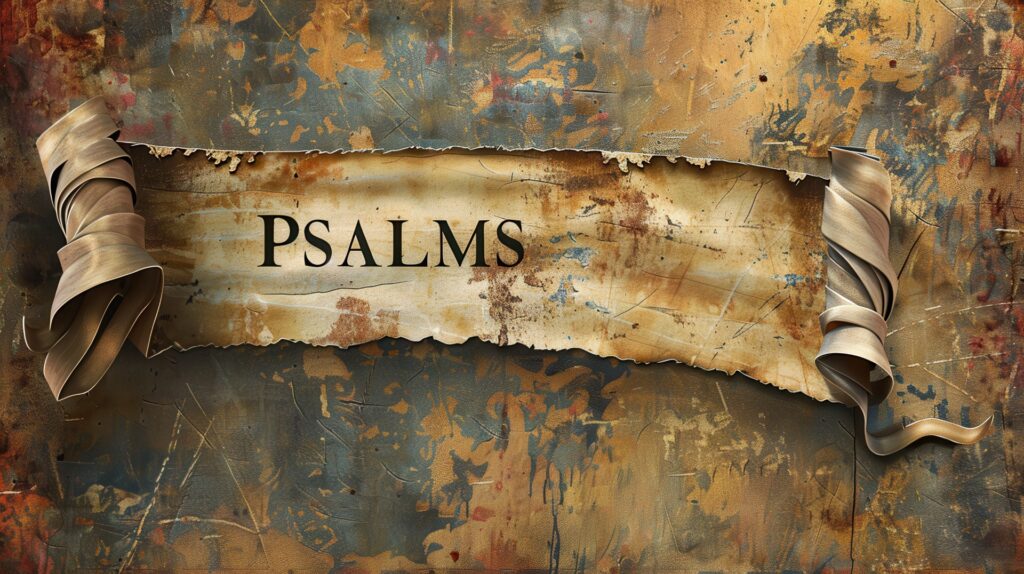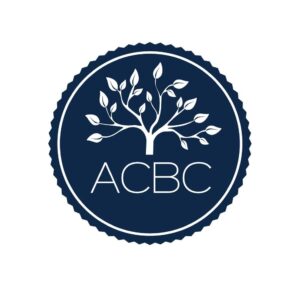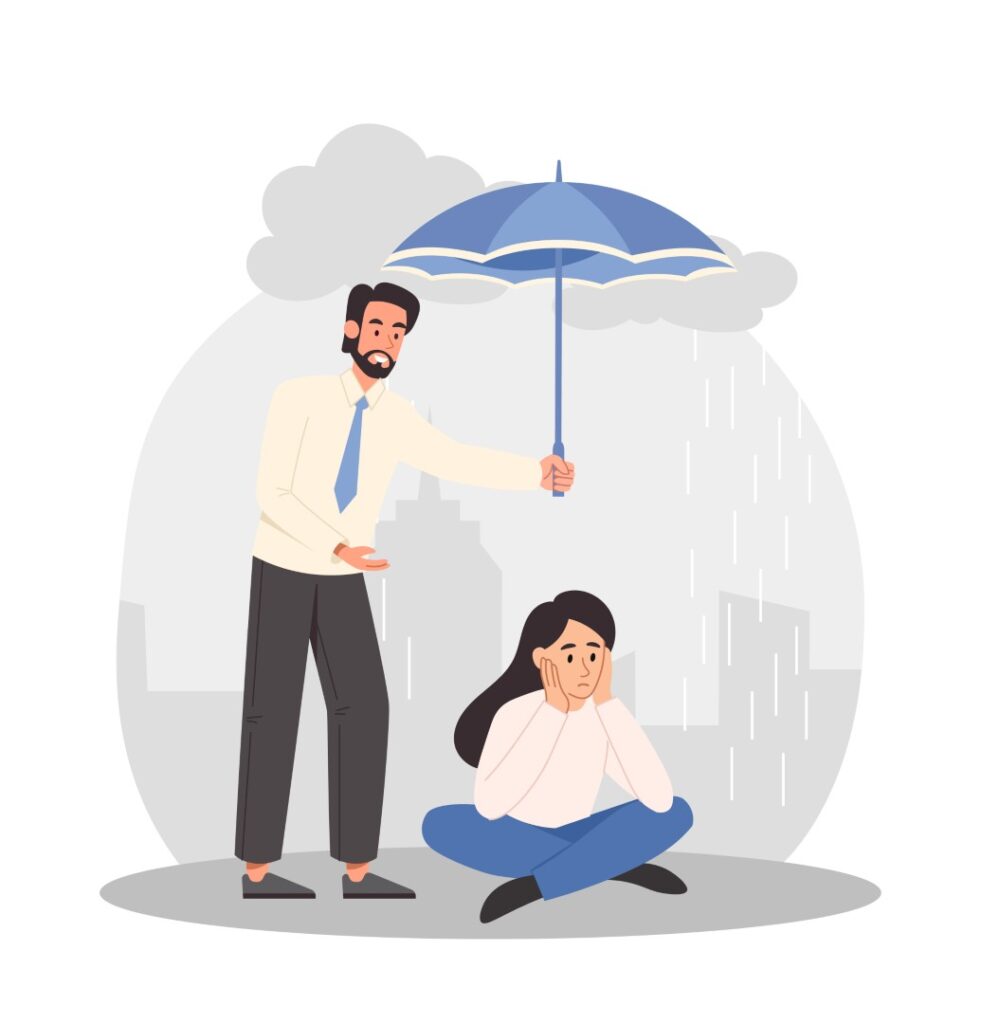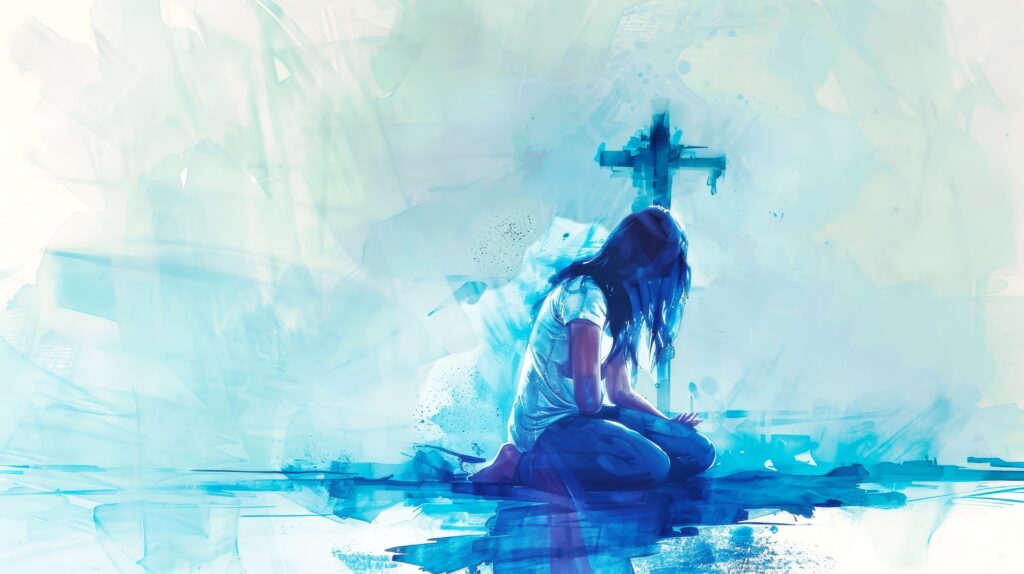

 by Mindy Denigan, ACBC Certified Biblical Counselor | Epilogue by Mary Paas, ACBC & FBC Certified Biblical Counselor
by Mindy Denigan, ACBC Certified Biblical Counselor | Epilogue by Mary Paas, ACBC & FBC Certified Biblical Counselor
Brooke took me by surprise when she bounced into our then-empty dorm room on the small, state university campus where we met in early fall as roommates. She was carrying a wrapped gift, her smile was glorious, and she pinned me a stunning question.
I froze.
Brooke was a vivacious Junior Scholars honoree who had become well connected to many on campus during the preceding summer. Consequently, she didn’t attempt a friendship with me, but she was always pleasant.
By the end of term, Booke was accustomed to the Scripture posters on my bulletin board and seeing me reading my Bible. She knew I attended church with people she knew of on campus, and she also observed me when I was "set up" to debate an atheist student in our cohort.
On the final morning of that semester, when Brooke bounded into our room, gift in hand and radiant smile on her face, I couldn’t have imagined the question she then asked me: "How does someone become a Christian?"
The entire semester of conversations, images, and thoughts flashed through my mind.
You see, although Brooke had not told me her backstory, someone else had. Brooke’s life had been gutted with pain. Deep loss. Clearly a providentially ordered string of losses.

There I sat, frozen and staring at her, wondering how I could explain the gospel in a nutshell to someone who grew up Jehovah’s Witness, and how I might frame my answer to also address what must be her bottomless well of sorrow over her unimaginable losses.
I can’t recall exactly what I said, but I remember that I was meditating on a psalm when the door flew open. Not knowing what else to do as she waited expectantly for an answer, I simply shared the written psalm about God’s character. Then I prayed with her to accept Jesus Christ as her Savior.
Never would I forget that day.
The gift she presented to me was a book about bringing biblical counseling to people who are in crisis!? She shared that she had tracked down a Navigator gal—an older student who had befriended me that summer—and asked her for a book suggestion. Seeing the book, my heart rejoiced. Yet, it also ached because I felt ill-equipped to share the gospel grace amid her dark and buried suffering.
I was only sixteen.
Such was the beginning of my years of listening to many women’s broken and suffering hearts—women who had endured date rape (drugs slipped into their Coke), angry boyfriends returning after breakups and violently raping them, childhood sexual abuse, abandonment by parents and spouses, and other such heart-wrenching realities.
I had no solid means to speak to such pain. So, I simply listened, and I absorbed their stories alongside my own, and thus the weight of my heart increasingly grew heavier.
Essentially, I was alone in life, without parental or church support or a meaningful friendship. Furthermore, I had no concept how to express my pain, let alone take it to the Lord in prayer—or to anyone else, for that matter.

The toll was coming due.
About seven years into my marriage, I realized I had my own "unfinished business" I’d brought into our relationship. I was in my early thirties and would have greatly benefited from biblical counseling. My church leaders could not offer such help, nor could any woman from our congregation. Neither was it practical for me to drive the sixty miles across the Los Angeles Basin to the counseling center in Escondido.
My pastor kindly offered to meet with me, but my husband and I thought that would be inappropriate. I was desperate for help with my grief and depression. So, with the elders’ permission, I ended up seeing an integrationist counselor.
That counseling experience felt almost bi-polar: Forty-five minutes was secular-based and the final fifteen minutes was biblical—a Bible lesson about Jesus. But those brief messages enabled me to see Jesus as the glory of the Father! Also key to my learning and processing my pain at that time was David Powlison’s article "What if Your Father Didn’t Love you?" from the Journal of Biblical Counseling, (JBC 12:1, 1993).
After that counseling experience, I was determined to devour all the biblical counseling materials I could find. We had since moved to Florida, and our church invited Jay Adams to lead a weekend of training, one of many such opportunities I’d take part in.
Likewise, when the NANC/ACBC conference was held in Montgomery, Alabama, I leaped at the opportunity to attend.

My church elders believed that my experiences and heart for others could be of help within our congregation and community. Soon after they shared that vision with me, I committed to the ACBC certification process, which they financially helped to support me through. The nearest training was in Albany, Georgia, just over a three-hour drive. Because my children were out of the nest, the season seemed perfect for me to put time on the road for multiple weekends to complete the classroom hours.
As I earnestly did the coursework, I felt as though I was flying solo through the training—little to no professional support. Lacking support wasn’t new to me; my experience all along through life had been without support. But within the year, as the Lord planned, I crossed paths with a new member of our collegiate community, Aurelia. Prior, there wasn’t a female ACBC counselor available to mentor me, nor whose cases I could observe.
Aurelia was absolutely, marvelously gifted. I pulsed her with questions and met with her on occasions. Otherwise, Aurelia’s focus was rightfully on building the ministry in her congregation. She wasn’t in a position to have me observe her cases, nor was she available to serve as my mentor. Of course, I met regularly with my male ACBC counseling supervisor, by phone, but otherwise, I was on my own, fully dependent on the written and virtual materials.
A requirement for the supervisory phase of ACBC training is finding counseling cases to work with. Lacking a mentor, lacking a counseling center near me, and lacking a culture of "focused discipleship" in my church congregation, I had significant challenges finding cases.

Those that I managed to secure carried deep levels of suffering. I desperately needed someone who would help me process such anguish. I had not had any idea I would face that degree of other women’s pain, and I felt woefully ill-equipped to help them. But I knew that the Word of God was sufficient—absolutely! Still, this question lingered: How do I connect the Word to such profound agony?
I had no idea.
By that point, I seriously wanted to quit counseling.
My holdback was two-fold: the women needed the soul care, and I didn’t want to turn my back on them. And I also felt committed to my church for providing me with financial support to get the training. Also, my elder, Pastor of Counseling Mike Ruff, needed a female counterpart.
Meanwhile, a friend who was training at the Renovaré Institute told me that their program was structured for each participant to have a spiritual mentor. She was shocked that I was expected to manage that depth of counseling without a support structure around me. Mike was a wonderful man, yet I could hardly imagine speaking with a man about the kinds of suffering and sin my clients had endured. I desperately needed a female mentor, a professional counselor to walk along me.
At ACBC’s 2018 annual conference in Fort Worth, Texas, I realized I needed to ask for help. The event’s topic was abuse. During the conference, I didn’t have a real conversation with an experienced woman counselor, and I felt as if I were attending a stranger’s reunion—everyone seemed to know each other, and I didn’t know anyone.
 Also in that environment, there was not truly a clear way for me to connect with a seasoned female counselor for mentoring. So afterward, I actively pursued some female ACBC breakout speakers to ask them for the two things I needed: professional support for my difficult counseling cases and guidance regarding the spiritual and physiological implications of the strange medical problem I was suffering: physical blackout episodes and auditory-induced migraines.
Also in that environment, there was not truly a clear way for me to connect with a seasoned female counselor for mentoring. So afterward, I actively pursued some female ACBC breakout speakers to ask them for the two things I needed: professional support for my difficult counseling cases and guidance regarding the spiritual and physiological implications of the strange medical problem I was suffering: physical blackout episodes and auditory-induced migraines.
I tracked down two high profile, well respected female ACBC counselors and got up the gumption to approach them. Unfortunately, neither were free to talk as they each had to be somewhere.
Next, I wrote an email to Dr. Lee Edmonds, one of the conference presenters, for help. His response was very compassionate, yet I still had no answers to my pressing questions.

Eventually, I met an expert counselor and developed a friendship with her. We started meeting by phone monthly and, counter to my hope, our talk time became another situation of me listening to someone else’s incredibly difficult cases and sharing in her sorrow. Yet, to my surprise and awe, I saw that the Lord was using me to provide her with various insights.
I continued my practice of daily gratitude and worship—singing and connecting with keys of my grand piano—but that didn’t lift my expanding burden. I was still suffering, which was no surprise! I was always the one to whom friends sought out to share their suffering. I was the listener who willingly walked alongside them. I listened and listened... to the point where I could not even pull my own thoughts together to share my pain if I got that opportunity.
I felt increasing pressure from multiple directions.
Simultaneously, I continued to seek all manner of help for my blackouts and migraines. I even went through a brain OT program. Ultimately, my family-practice doctor—who was also my adult piano student and a thirty-five-year veteran of pediatric OT—recommended the Wounded Warriors program, hoping that the migraines and blackouts could be addressed at the same time.
I took his advice and found some benefit in the program. (I turned out to be an interesting case for them.)
When I had blackout episode during a church worship service, my medically trained family and friends insisted I self-referred to Mayo Clinic in Jacksonville, Florida. Almost immediately, Mayo took my case and performed multiple diagnostic testing. I was diagnosed with dysautonomia—a dysregulated nervous system disorder. But my glimmer of hope for a solution quickly dissipated when Mayo could not offer any.

I could spill a truckload of words here, listing the myriad standard and non-standard medical protocols I tried. And the finances! The driving!... My husband was a martyr on my behalf, even while he was trying to wrap his engineer brain around what was happening inside me.
During that time, Mike Ruff had put my name on the Fallen Soldiers Ministries’ contact list of counselors. What types of suffering would the wounded bring my way through FSM? Domestic abuse, betrayal, grief, child sexual abuse—an endless list. And still, I was flying solo in my counseling ministry, growing more desperate for assistance.
Once a month, Mike met with me by phone to stay updated on my cases. But I held the details of clients’ circumstances close to me, not feeling comfortable speaking about their depths of suffering, especially to a man.
At last, I came to the end of my ACBC training, about five years after starting, and I graduated. What a day! I recall shaking Heath Lambert’s hand and him exclaiming about my location, "Oh! Niceville! So, you’re in that ‘red zone’ where there isn’t a training center, and the nearest ACBC counselors are in either New Orleans or here in Jacksonville. We’re so happy to have you!"
I then faced the rigors of becoming certified, a three-phase process. My cases during that time were pretty tame by comparison: a gal with an autistic child, a weary young mom who was appealing to her husband for a waiting time before they had their next child, an anxious college girl, and grieving widows.
After completing my training, almost every woman who came to me shared a deeply painful story. Their suffering was similar to what I’d heard from peers while attending college. Most women who were now walking through my door had experienced sexual abuse, sexual assault or rape, domestic violence, and child sexual abuse. I had a severe case involving abandonment, wives betrayed by husbands entrenched in significant porn addictions, and women who’d had lesbian sexual encounters.

How was I to speak to these women about the seemingly superficial topics that were part of the ACBE training—fear, anxiety, anger, etc.,—when the issues they needed to have addressed were far more fundamental?
When I was teen, listening as others shared with me their deep wounds, I would experience the freeze response rather than fight or flight. All these years later, I thought I had moved passed that, but no. I would freeze when listening to my clients’ gut-wrenching suffering. Then my post-counseling (evenings at home) response changed: I was blacking out. After those heavy counseling sessions, I’d feel the need to be physically active, moving my body to relax. So, I’d work in my kitchen while praying through the day’s counseling conversations and for each woman’s needs.
At times in my kitchen, I’d have a blackout episode and collapse to the floor. Thankfully, I’d quickly wake up and have no injuries. Nonetheless, this scenario was becoming too common. And, frankly, too dangerous!
One day I was meeting with a gal informally, in my home. I knew she had been through horrendous, unspeakable suffering. As we talked, she was triggered by something and instantly went into a multiple personality event, taking on various characters. One was enraged and screamed at me. After she left my house, I needed to shake off the stress, so I started cleaning the kitchen. Although I had learned the warning signs of an impending blackout, and headed toward a kitchen chair, I didn’t reach it in time. As I fell, my chin hit the marble top table.
Multiple times, Mike had expressed concern about my deeply compassion heart for wounded women and the level of pain I experienced because of carrying their pain with my own. Their degrees of suffering were greater than I’d ever heard or had touched on in all my ACBC training experience. Mike Ruff had a great deal of confidence in me and encouraged me and prayed for me. And there were women in my life who I knew were carrying me in prayer. Nevertheless, the narratives of the suffering were very weighty to bear, and my suffering increased. As difficult as the ACBC sphere had been, I had not heard anything close to what I was now hearing as a professional counselor, until the Ft. Worth ACBC annual conference on trauma.
 Even then, despite all the training and experience I was gaining, I didn’t feel equipped to enter such pain. I wrestled with how to best bring the Word of God to suffering souls. How do I rightly weep with those who weep? How do I come alongside and lift the burden rather than sit across from her and simply give theological words?
Even then, despite all the training and experience I was gaining, I didn’t feel equipped to enter such pain. I wrestled with how to best bring the Word of God to suffering souls. How do I rightly weep with those who weep? How do I come alongside and lift the burden rather than sit across from her and simply give theological words?
How do I bring the God of compassion into her view? How do I help her see Jesus through her tears and confusion as He had when He met with Mary Magdalene at the tomb? How do I speak hard truths in love—the difficult truths that feel counter to what she wants to hear? What tools do I have that are effective in helping me walk through such difficult counseling processes? And what tools do I have for the counselee?
Two years ago, in mid-2023, I had a case through FSM that was another very sad situation. Yet, in a sense, it was no more traumatic than all the others. However,, this time I found myself absolutely stuck. Stuck mentally and emotionally.
Frozen?
Normally in my counseling note-taking, I could write page after page, remembering myriad details from the sessions. But, in this case I found that I just could not write the final report. I was in no position mentally and emotionally to relive and process the conversations she and I had. As I read my earlier notes, toward an attempt to write the report, I also grieved over her unwillingness to participate in counseling.
During the session with her, I experienced significant, interruptive (very inconvenient) physical symptoms. I couldn’t figure out the source. I considered seeing a doctor, but because my multiple past experiences with medical practitioners had been unsuccessful, I had no confidence that I would get the help I needed. My physical health had been suffering for years. The diagnoses included Celiac disease and Hashimoto’s—two autoimmune conditions I was trying to manage in addition to the blackouts and migraines. Now these new symptoms were threatening me. I felt helpless and overwhelmed.
I visited a friend in DC, whom I hadn’t seen in years, all the while praying that I could physically make it through the trip. I did, and out of her concern for me, she took me to visit her friend, a naturopath who started working with me to restore my health.
Soon after that trip, my husband insisted I travel with him on a business/personal trip to California. I just kept praying that I would not have any episodes while traveling across country.
 Looking back on visits with friends in DC and California, I found that so many of our conversations turned to the topic of my work and how I thought about the very difficult situations of suffering I encountered as a counselor. While visiting our friends in California, they expressed great concern for me. My longtime friend asked me, yet again, to consider a different career, no longer counseling. She and her husband, an elder in their church, asked another elder to talk with me in terms of checking on my mental, emotional, and spiritual well-being.
Looking back on visits with friends in DC and California, I found that so many of our conversations turned to the topic of my work and how I thought about the very difficult situations of suffering I encountered as a counselor. While visiting our friends in California, they expressed great concern for me. My longtime friend asked me, yet again, to consider a different career, no longer counseling. She and her husband, an elder in their church, asked another elder to talk with me in terms of checking on my mental, emotional, and spiritual well-being.
We happened to cross paths with the elder at an evening service and we sat and talked. I tried to explain the depth of my grief, my need for a counselor to shepherd me in my work, and how desperately I needed such support. I told him that women were coming to me for counseling with issues they would never, ever speak of to their church pastors or other leaders. I shared that they would lay their souls’ deepest burdens on me and that their pain was almost unspeakable for me. And I reiterated that I needed other female counselors to help me in carrying the weight of my clients’ suffering.
Although he had no answers and simply looked concerned and nodded as I shared, he had given me a momentary gift: listening.
Not long after we returned home, Jim Retzke called me, inquiring about the still-open case from 2023, asking me to finish the report. I knew I had to be honest and tell him I was absolutely unable to write the report, and that I felt stuck.
Frozen?
I also shared honestly that I could not carry anything more. No more cases.
After a moment, Jim grasped what I was saying. (No surprise; how often do counselors ask for such help?) He was extremely busy, preparing for a conference that would begin the next day, yet he said, "Let me see what I can do for you today. Let it not be said that we do not take care of our own."
A couple of hours later, he called with news that he had contacted Mary Paas, a counselor, and confirmed with her that she would be available to help me. This was on a Friday afternoon.
On Monday afternoon, as I was walking in a local park, asking the Lord for help, Mary called me. What did Mary do? She gave me the gift of listening and she gave me the gift of presence.
Mary was a wonderful help!
She listened to me for many hours as I poured out my grief. She heard the pain. She helped me by strongly urging me to be honest with the Lord about my feelings, and she counseled me to lament. She also challenged me with truth: I was hiding and not being honest with the Lord or with myself. I see that now. I was not being honest with my husband about the depth of my ongoing grief and pain.
I had needed to recognize that although my suffering was not as drastic in comparison to the women who came to me for counseling, my pain was just as real, and I needed to fully lament rather than stuffing everything inside with the hope that somehow the cavern and weight of pain on my heart would go away. I had needed to lament with someone—another female counselor. Mary.
I was already somewhat familiar with lamenting, having worked through a large volume of content, including books, articles, and audios. I read and listened to Mark Vroegop’s book, Dark Clouds, Deep Mercy. I pondered Michael Card’s book, Songs of Sorrow: Reaching Out to God in the Lost Language of Lament, in which he elaborates on various lamenters of the Bible. And I listened to Trisha Harrison Warren’s book, Prayers in the Night: For Those Who Work or Watch or Weep.
I also worked through the lament exercise in the training material my friend in DC had written for her former mission agency. The material is still in use today, training women who minister to sexually abused women.

Up to that point, I had only associated lament with a solo journey, and only in relationship to addressing my personal pain. I had not thought about lament in terms of expressing pain about someone else’s suffering.
Reading content about a spiritual practice is one thing, and having someone walk you through a practice is another. I realized this while talking with Mary. I recognized that I had my own deep pain—profound grief that I had refused to acknowledge—that was detrimentally affecting me.
When I first approached lament, I was coming from a context where the word "trauma" was considered too psychologized to be used, let alone "secondary trauma." What then do we call the desperate overwhelm we experience when steadily, day after day, year after year, carrying other people’s immense grief, and the weight of not addressing one’s own legitimate suffering?
Was the overwhelm, the trauma, part of the puzzle interlocked with my blackouts?
Mary provided me with a study tool she had written to help with the lamenting practice and process. For years and years, Scripture memorization had been a part of my daily practice. I had associated the psalms with pouring out my heart before Yahweh rather than seeing the psalmists’ words as simply their own. Mary’s exercise better enabled me to speak to the Lord with His words—Scripture. I went through the exercises and shared the meditations with her.
Even so, she urged me to go deeper. "Deeper. Be more and more honest with the Lord about your pain."
I drew back at her words, knowing I would be walking in darkness.
Mary encouraged me, "Mindy! When you go into the depths, the Lord Jesus will be holding your hand, and you will meet Him there in that darkness."
Truly, what an incredibly painful process. I had blocked off my weekend for that purpose.
Mary was right. I experienced God’s grace to me and His presence! The Lord met me in that darkness, and He opened His Word to my heart, even as I was opening my heart to Him.
 One meaningful way the Lord blessed me was by leading my precious daughter to call. She shared the Scripture she was meditating on. She and God said just the right words at just the right moment!
One meaningful way the Lord blessed me was by leading my precious daughter to call. She shared the Scripture she was meditating on. She and God said just the right words at just the right moment!
By God’s grace through this counseling process, I have grown to be much more honest with the Lord, and as a result, more honest with others and myself. I came to realize that I needed to lament everything that grieves, even to the point of making lament a daily practice—just as important as my already established singing and worshipping at the piano each morning.
How interesting that at a certain point in this journey, Mary, and my naturopath/nutrition counselor (who had also encouraged me in the lament process), and a very close friend—all three—observed how God had made a major breakthrough in my heart, mind, and spirit.
I had lamented my family history and then let it rest in my loving, sovereign, heavenly Father’s hands.
Soon afterward, over the Mother’s Day weekend, I visited my parents and siblings. My response to and interaction with my family was completely new: I was able to love them rather than need anything from them. I also had the freedom to joyfully speak of God’s wondrous grace work in the life of my children—a conversation that would not have happened under previous circumstances.
I had become new person—one who is much more lovingly bold, honest, and quicker to speak of the Lord. I’ve become more honest about my own struggles and how God provides His grace for me. Most certainly, He has enabled me to become more transparent in my prayer life and to meditate all the more deeply on His Word.
After about a year, Mary and I reached the point where we believed we’d wrap up our counseling relationship. However, I had just received word that I needed to undergo a breast biopsy. A growth had been found through diagnostics. Ultimately, I had four ultrasounds and three mammograms within the span of twenty-three months—not to mention all the diagnostics I’d undergone since age thirty.
Mary suggested we wait to decide about ending our sessions until after I learned the results of the biopsy. I appreciated her willingness to make herself available to walk alongside me in the possibility of yet another potentially difficult situation.
As it turned out, the biopsy results confirmed cancer.
Thus began another highly intense journey! As a friend once said to me upon her breast cancer diagnosis, "It looks like God is calling me to a new mission field! But not a mission field in another country—a mission field to the medical world."
I embraced her words and their truth.
 My diagnosis was on July 19, followed by more diagnostics and two surgeries. The first was on the day Hurricane Milton hit Jacksonville. The second was about two weeks later, as the first had not successfully removed all the cancerous tissue. My final radiation therapy was on December 16. Throughout that intense protocol, I followed Mary’s strong encouragement to journal. Those journal entries became regular biblical counseling essays. As I practiced self-counseling and the writing, I shared those essays with my readers, in essence, sharing my process of lamenting. My hope was that I could provide them with some light in their darkness.
My diagnosis was on July 19, followed by more diagnostics and two surgeries. The first was on the day Hurricane Milton hit Jacksonville. The second was about two weeks later, as the first had not successfully removed all the cancerous tissue. My final radiation therapy was on December 16. Throughout that intense protocol, I followed Mary’s strong encouragement to journal. Those journal entries became regular biblical counseling essays. As I practiced self-counseling and the writing, I shared those essays with my readers, in essence, sharing my process of lamenting. My hope was that I could provide them with some light in their darkness.
Throughout those four months, ministry opportunities and subsequent conversations were happening, seemingly daily! In hand, I looked for ways to pull back and rest, needing to focus on my internal conversation with the Lord and allow my body to heal and my soul to be refreshed.
My amazing heavenly Father’s plan and providence had connected Mary and me for a number of reasons. One was to prepare me spiritually for the cancer journey. Because of the counsel Mary had given me, and because she had the insight to see my core heart issues and had the courage to lovingly, firmly, and compassionately walk with me through the very challenging heart work of deep lament, I was able to move through the cancer "mission field" with a measure of freedom and joy. Amazing!
Meditating on God’s Word, I experience the intimacy of His surprises and His abiding presence and peace—a peace so great that it not only engulfs my soul but also creates incredibly profound, physical indications of physiological peace. And my heart is open to experience a deeper joy.
I’m able even more to "weep with those who weep" and extend single pointed words of help and hope without experiencing adverse physical symptoms. Praise God! Indeed, He is "the way, and the truth, and the life" (John 14:6 ESV).
In what areas do I still need to learn and grow more? What aspects and areas of my heart and mind still need changing?
Although the blackouts no longer exist—thank You, God—and I have learned and established the practice of lament, I still strongly desire to fully break the physiological relationship between listening to someone’s suffering and experiencing significant physical reactions in my body: eczema and grave needle-like pricking pain. As soon as I hear a negative thought, and before I even have an opportunity to think about what’s going on in my body, the intense itching starts. At times, the pricking pain fires with the eczema. I want to be able to enter fully into the ministry of counseling each day without physiological suffering.
 My approach to returning to counseling, after the cancer treatments, is two pronged: One, I’m establishing further nutritional and lifestyle protocols for physical healing and the upcoming surgical procedures that may help ease the eczema. Thankfully, there isn’t even a slight hint of blackouts! Thank you, Lord!! And two, I’d like to have a monthly check-in with Mary—someone with whom I can have a measure of shepherding related to the heavy burdens of my clients, someone with whom I can freely talk, and who will pray with me and for me.
My approach to returning to counseling, after the cancer treatments, is two pronged: One, I’m establishing further nutritional and lifestyle protocols for physical healing and the upcoming surgical procedures that may help ease the eczema. Thankfully, there isn’t even a slight hint of blackouts! Thank you, Lord!! And two, I’d like to have a monthly check-in with Mary—someone with whom I can have a measure of shepherding related to the heavy burdens of my clients, someone with whom I can freely talk, and who will pray with me and for me.
Yes, I need the Lord, and He designed us to need Him and one another. I need both. We all do. I’m thankful for my husband who loves me and faithfully prays for me. He can hardly wrap his brain around my clients’ significant suffering, and he weeps whenever he hears of those who cause suffering to helpless women and children.
Even as the Lord has collected my tears in His bottle and graciously applied pressure to stop the bleeding of my broken heart, He, Yahweh, faithfully walks beside me. He leads me in the paths of righteousness for His glory—even through the valley of the shadow of death (Psalm 23).
OH! And would you believe I completed reading Pilgrim’s Progress just before the cancer diagnosis?!
What a gentle, compassionate, loving Shepherd we have!
by Mindy Denigan
February 25, 2025
Update, May 4, 2025:
With great wonder and praise to God, I share this report: For the past six weeks, the Lord has enabled me to return to counseling and teaching music without undue flareups! With the spiritual practice of lament, being more mindful to pursue sabbath rest, having medical and health protocols for support, and modifications to my counseling approach, I no longer suffer with physical conditions. Furthermore, my body does not carry the same level of stress. Consequently—to my endocrinologist’s joy (and mine) and answers to his prayers for me—my Hashimoto’s thyroid inflammation has decreased to the point that I’m able to lower my medication dose for the first time in ten years!
Though the needle-pricking pain flares from time to time, that too has notably improved.
My gratitude to God and to those who continue to surround me in every aspect of support.
 Says the Lord,
Says the Lord,
who makes a way in the sea,
a path in the mighty waters,. ..
"Behold, I am doing a new thing;
now it springs forth, do you not perceive it?
I will make a way in the wilderness
and rivers in the desert." —Isaiah 43:16 & 19 (ESV)
by Mindy Denigan, ACBC Certified Biblical Counselor
Epilogue
by Mary Paas, ACBC & FBC Certified Biblical Counselor
When the opportunity came my way to walk alongside a fellow female Biblical counselor in her time of need, I didn’t hesitate. I wanted to provide the comfort, care, and counsel of our suffering Servant, Jesus Christ. He, ultimately, is the One who can sympathize with all our weaknesses while providing His grace and mercy to help (Heb. 4:15–16).
I shared a particular interest in Mindy’s situation because she longed for fulfillment. Her desire for a female mentor to provide biblical support and wisdom, which is good and godly, is often unmet. I too had this desire during the ending phase of my training for Biblical counseling.
Woven throughout Scripture are numerous passages regarding the call and benefit of mutual service to one another for the building up and maturing of the saints. While women do not replace the ordained office of male leadership of the local church, women must not shrink away from our role to teach what is good and thereby encourage women to love their husbands and children (Ti. 2:3–5).
Proverbs 31 unfolds the character of a noble wife and does not neglect to mention the wife’s laborious yet generous service to her community with wisdom and loving instruction on her tongue (Prov. 31:24–31).
Mindy has been in the right season of her life with the right heart motivation to provide the wise counsel and compassion of our Savior to hurting women. She trusted the Lord with her call to the ministry of biblical counseling. Yet, she was suffering and stumbling to find a safe way through. Proverbs 28:26 says, "The one who trusts in himself is a fool, but one who walks in wisdom will be safe" (CSB).
Mindy wanted an increase of wisdom for the sake of others and for her own well-being. Her heart weighed heavy with grief and her body was wrecked with pain. She was right in her desire to seek medical testing and evaluations to determine any organic contributors to her blackouts and other physical ailments. As trained biblical counselors, Mindy and I are on the same page in our belief that there is a connection to our whole-person as an embodied soul. We were made with the outer man (material) and inner man (immaterial) (Gen. 2:7, 2; Cor. 4:16). This means that mankind is utterly dependent on the Lord who gives breath. Our response should be as the closing verse of the book of Psalm: "Let everything that breathes, praise the Lord" (Psa. 150:6).

Mindy was fighting within her failing body to praise the Lord. Her gifting as an exceptional pianist with a worshipful heart was likely helping, but not removing her sorrow or her physical pain (Ecc. 11:10).
As I listened to Mindy share her burdens, I heard a combination of her hurts in close relationships, her grief over the situational suffering she heard from the women she counseled, and her discouragement over lack of answers from the medical field for her physical ailments.
The first step in my counseling plan with Mindy was to be as present as possible with the 1,000+ miles between us. We spent time together on the phone and then on video calls. As I modeled the care of Christ by listening with compassion and truth, my initial assignment for Mindy was to lament to the Lord.
I wasn’t surprised that she had not yet learned how to lament; this practice is often overlooked in our churches and ministry training. Through my own season of suffering and grief, I had had to learn to lament and receive the comfort of the Lord. I was happy to point Mindy to the all-sufficient Comforter of our souls.
Oh, how we mere mortals can be disillusioned to think that living in the sufferings of this world desensitizes us from the glory that has been revealed to us through our Lord, Jesus Christ, who will return to wipe away every tear and do away with death, grief, crying, and pain, making all things new (Rev. 21:3–5).
Most Christians, while instructed to endure, know what is right and what is yet to come. This is all good and correct; however, if the way one endures does not involve reconciling the realities of this fallen world through the light of Christ’s glory and the truth of His Word, the spiritual eyes may be blinded to this dichotomy and moved deeper into falsehood. Ephesians 4:25 instructs us to "put off falsehood and speak truthfully to your neighbor, for we are all members of one body" (NIV). This was Mindy’s desire—to have a faithful servant of God who would speak loving instruction from His all-sufficient Word for the purpose of building up the saints. This loving instruction is also what began to bring healing to her whole-person.
by Mary Paas, ACBC & FBC Certified Biblical Counselor
____________________________________
![]() Have comments or questions about this article - either directly for FSM or the author? Use our contact form to submit any input confidentially:
Have comments or questions about this article - either directly for FSM or the author? Use our contact form to submit any input confidentially:
____________________________________
If you are Veterans or a friend/family member of a Veteran and would like request our counseling, please use the link below:
If you are a counselor and would like to join our network, please use the link below:
Join the FSM Biblical Counselor Network
If you like what you've read , sign up to receive quarterly newsletter articles and updates via email - or SUPPORT our mission by making a donation, even $10 per month can make a huge difference and allow us to grow our counseling and spread the word of God!
Donate Now - One-Time or Recurring Monthly Donations!









